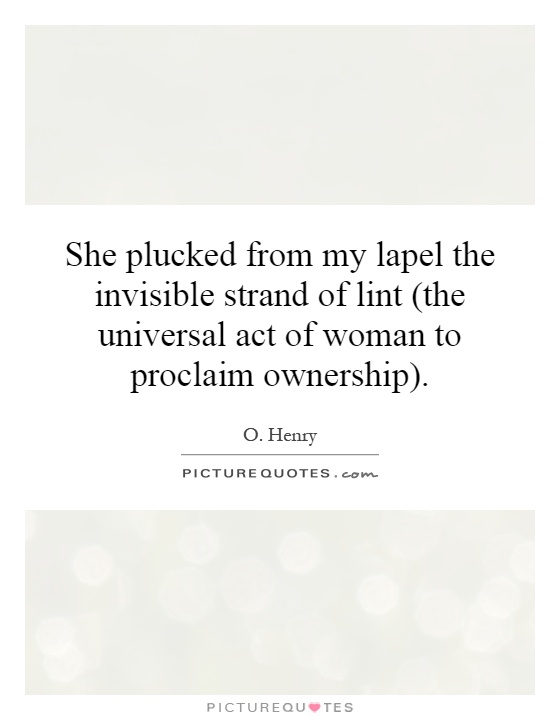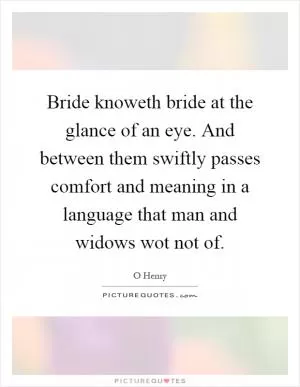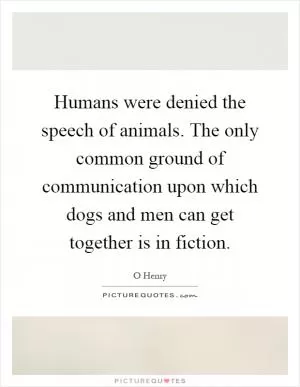She plucked from my lapel the invisible strand of lint (the universal act of woman to proclaim ownership)

She plucked from my lapel the invisible strand of lint (the universal act of woman to proclaim ownership)
In the world of O. Henry, the act of a woman plucking lint from a man's lapel takes on a deeper meaning than just a simple gesture of cleanliness. It becomes a symbol of ownership, a subtle way for a woman to assert her presence in a man's life.O. Henry, known for his clever and ironic twist endings, often explored themes of love, relationships, and human nature in his short stories. In many of his works, women play a central role in the lives of his male characters, often serving as catalysts for change or revelation.
When a woman plucks lint from a man's lapel in an O. Henry story, it is not just a random act of tidying up. It is a declaration of ownership, a way for the woman to stake her claim on the man and assert her influence over him. By removing the lint, she is asserting her presence in his life, subtly marking him as hers.
This act of plucking lint can also be seen as a form of control or manipulation. In O. Henry's stories, women often use subtle tactics to influence the men in their lives, whether it be through flattery, manipulation, or deception. By plucking lint from a man's lapel, a woman is exerting her power over him, subtly reminding him of her presence and influence.
The invisible strand of lint becomes a symbol of the invisible ties that bind the man and woman together. It is a reminder of the connection between them, the unspoken bond that exists between them. In O. Henry's world, relationships are often complex and fraught with tension, and the act of plucking lint becomes a way to navigate the intricacies of love and desire.
Overall, the act of a woman plucking lint from a man's lapel in the context of O. Henry's stories is a powerful symbol of ownership, control, and connection. It is a subtle gesture that speaks volumes about the dynamics of relationships and the ways in which people assert their influence over one another.












 Friendship Quotes
Friendship Quotes Love Quotes
Love Quotes Life Quotes
Life Quotes Funny Quotes
Funny Quotes Motivational Quotes
Motivational Quotes Inspirational Quotes
Inspirational Quotes